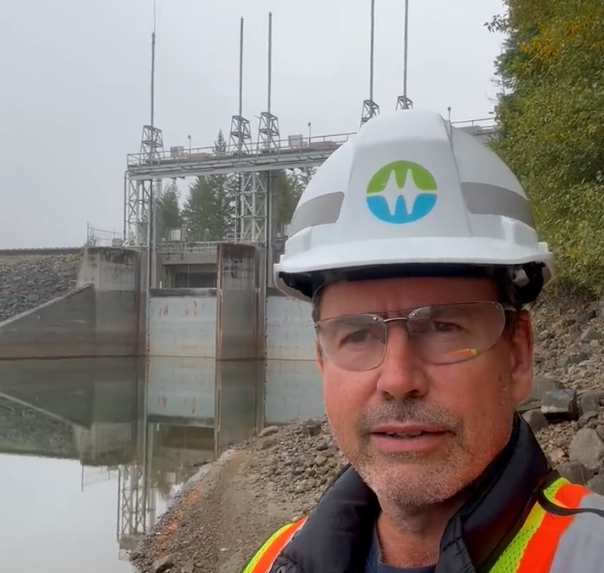This year is shaping up to be one of the lowest on record in terms of power generated in BC thanks to recent droughts.
According to data from Stats Canada, this could be the lowest year for power generation in BC since 2010.
However, with storm season coming, Stephen Watson says the silver lining is Island reservoirs have lots of capacity to absorb winter rains and snow.
“The good news is, we like to have the reservoir on a bit of the lower side, so it can absorb a lot of those storms,” he said in a recent X post. “For example, there’s remnants of a typhoon that may hit Northern Vancouver Island towards the middle of next week.”
Drought conditions continuing from last year curtailed hydroelectric production throughout the province, and July was one of BC Hydro’s leanest months in a decade for power production.
The Crown corporation is already planning to import almost double the amount of power over last year from the US and Alberta this winter to manage shortfalls, depending on storm inflows. BC Hydro’s service plan for the next year assumes an increase in power imports from 2,419 gigawatt-hours in 2022-2023 to 4,167 next fiscal year, and to 5,029 the year after that.
The service plan also shows a concurrent reduction in power exports over the next three years.
To put that into perspective, this past year power imports made up 3.7% of all supplied electricity in the province. Next year that may increase to 6.3% and to 7.4% the year after that. However, BC Hydro plans to maintain power exports at slightly higher levels than imports for the next few years.
The most productive year for power generation since 2008 was in 2017, when the province generated 74,484 gigawatt-hours of electricity thanks to heavy rains and massive snowpacks in the early part of the year. The lowest on record was 2010, when the province generated only 59,477 thanks to dry conditions and sparse snowfall the year before.



